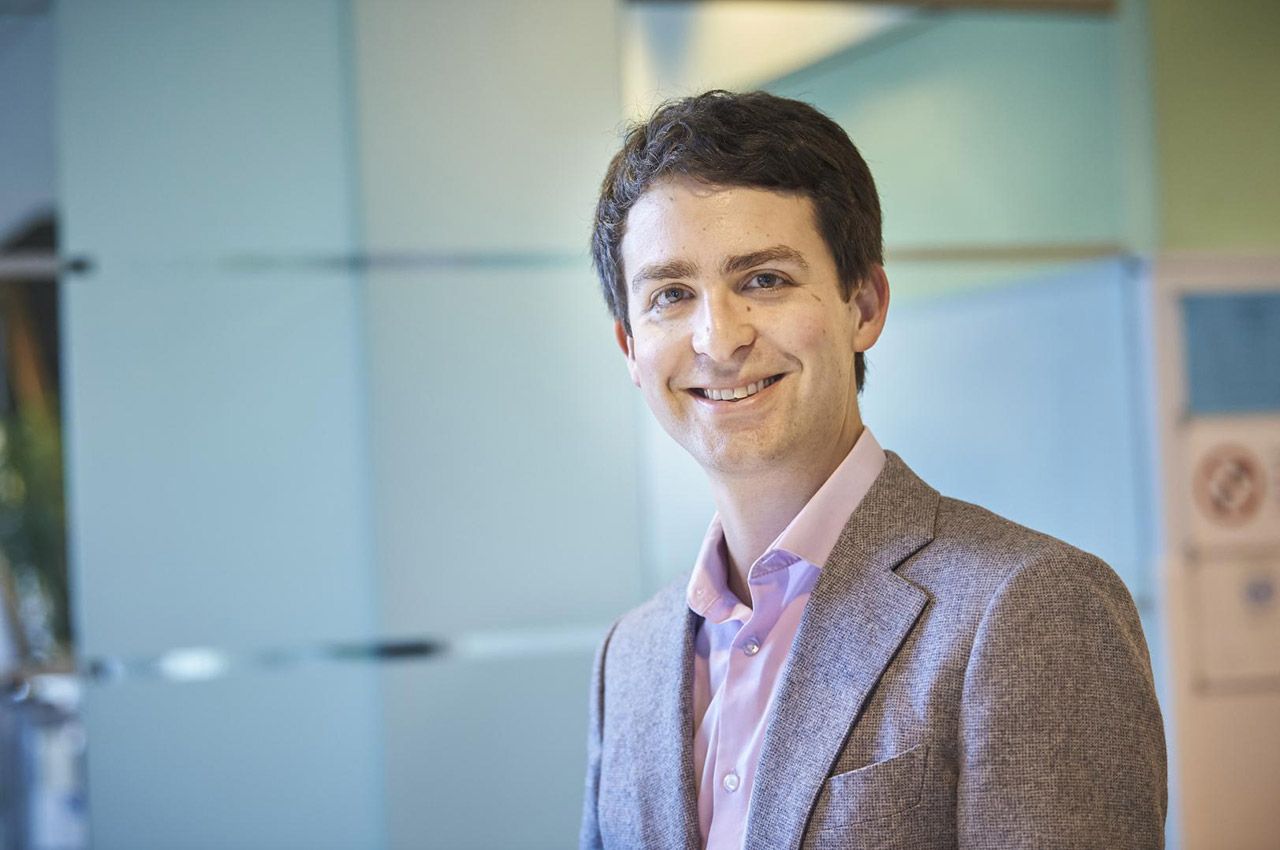Civil Rights Litigator and Constitutional Tort Scholar Noah Smith-Drelich to Join Chicago-Kent College of Law Faculty

Noah Smith-Drelich, a civil rights litigator and scholar in tort law, is joining Chicago-Kent College of Law as an assistant professor of law in the fall.
Smith-Drelich’s research lies on the intersection of tort law, civil procedure, and health policy, focusing on the ways in which substantive and procedural law shape legal systems through the individual-level incentives that they create. He is joining the law school from Columbia Law School, where he has been an Academic Fellow and Lecturer in Law.
“We are excited to have Noah join our law school faculty,” said Chicago-Kent Dean Anita Krug. “Our students will benefit greatly from his expertise in tort law and health policy and his perspectives as a litigator.”
Smith-Drelich’s research interests include constitutional torts, which is the legal category under which most lawsuits for constitutional rights violations are brought. Current constitutional tort law assumes that by compensating victims of constitutional wrongdoing for their injuries, lawsuits adequately discourage state officials from committing constitutional violations. In his forthcoming article, The Constitutional Tort System, Smith-Drelich challenges this idea: “Prejudices weigh on decisions about policing and governance, and so officials who are prejudiced will not be deterred by constitutional tort suits to the same extent as officials who are not. Until constitutional tort law accounts for such influences—it does not currently—the constitutional tort system will inadequately deter a large and particularly concerning subset of constitutional violations.”
Smith-Drelich also does experimental research on the incentive effects of food taxes and subsidies. He is currently collecting data from all 50 states for a research project that analyzes the public health impacts of past changes to restaurant and grocery taxes.
“It’s an exciting area of research, in part because so many states and municipalities are interested in implementing food taxes, including but not limited to soda taxes, but there isn’t much academic research on what works,” he says.
In addition to his research, Smith-Drelich is lead counsel for Thunderhawk v. County of Morton, an ongoing civil rights suit related to the 2016–2017 NoDAPL movement at Standing Rock. The federal court case alleges that Morton County, North Dakota, with the assistance of a number of state and county officials and a private security company employed by Energy Transfer Partners (the company constructing the pipeline), violated the Constitution when it discriminatorily closed a portion of the main highway connecting the Standing Rock Reservation to several significant religious sites and Bismarck, North Dakota for five months.
Prior to attending law school, Smith-Drelich was a middle and high school English teacher on the Pine Ridge Reservation in South Dakota and an adjunct professor at Oglala Lakota College. He fell in love with teaching and developed an interest in the law while on Pine Ridge, as he witnessed “the impact that an unjust legal system can have on a community.”
“I think my curiosity in torts dates to this time. There is just something so empowering about tort law, which gives individuals a legal right to sue when they are harmed,” he says. “Since my time on Pine Ridge, I have sought, first as a litigator and now as an academic, better ways of using tort law in pursuit of just societal outcomes.”
Smith-Drelich is a graduate of Stanford Law School, where he was an articles editor for the Stanford Law Review and editor-in-chief of the Stanford Law & Policy Review. He earned his bachelor’s degree from Williams College and has a master’s degree in environment and resources from Stanford University. Smith-Drelich was a law clerk for Judge Edmond E. Chang of the U.S. District Court for the Northern District of Illinois and Judge Jay S. Bybee of the U.S. Court of Appeals for the Ninth Circuit. Smith-Drelich was a staff attorney for the American Civil Liberties Union’s North Dakota, South Dakota, and Wyoming office. He was also an attorney at Korein Tillery for three years, where he focused his practice on complex litigation.
Smith-Drelich says he is looking forward to returning to Chicago and training the next generation of lawyers at Chicago-Kent.
“I’ve been incredibly impressed with the academic community at Chicago-Kent and with the school’s forward-looking nature,” he says. “Chicago-Kent has a top-notch faculty doing interesting and important work. I’m honored to get to be a part of that.”



